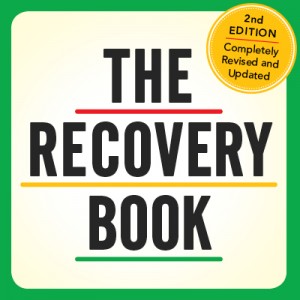We know so much more these days about the brain and how addiction affects it—and about how we can help it to heal.
Addiction doesn’t happen because someone is lazy or is a “bad person.” It’s a brain disease, pure and simple. In some people, repeated use of alcohol or other drugs causes profound structural and functional changes to the brain. The need for drugs becomes a compulsion that can’t be ignored; it is as ingrained in the brain as breathing or looking for food. Plus, the frontal lobe, the executive brain, is damaged and is no longer able to override those impulses with rational thoughts.
We used to think that the brain was set in stone once a person was grown. We now know that’s not true. In fact, the brain can grow and change at all ages, a concept known as neuroplasticity. When the brain changes for the worse in addiction, we refer to it as “negative neuroplasticity.”
We can use the same concept to help a person in recovery. In The Recovery Book we show you how to focus your brain on recovery, how you can use your daily thoughts and actions to “re-mold” your brain around recovery. In this case, it’s “positive neuroplasticity.” It all boils down to the acronym TAMERS:
- Think about recovery and Talk about recovery
- Act on recovery, connect with others
- Meditate and Minimize stress
- Exercise and Eat well
- Relax
- Sleep
Read more about your brain in addiction and recovery and what you can do to help it heal in Chapter 1, Welcome to Recovery. (Get the first two chapters for free on Amazon.)


Pingback: 37 Ways to Stay Sober During the Holidays | The Recovery Book |
This is sure to be a life-changing book for so many! What a gift to put into the world!
Yes, each of these “Tamers” is important, but each of them requires Commitment to finding ways to make them happen. Changing entrenched patterns and addictions is possible, desirable, and extremely difficult. It’s a repeated uphill climb for many people. I look forward to reading The Recovery Book and sharing it with my clients.
I write a lot about habits on my posts for Listening Impact, and totally agree that we all have habits formed over a lifetime in our brain, body, and emotions. Habits can be changed, but not by wishing; real changes require rigorous effort to deal with all that has been ingrained.